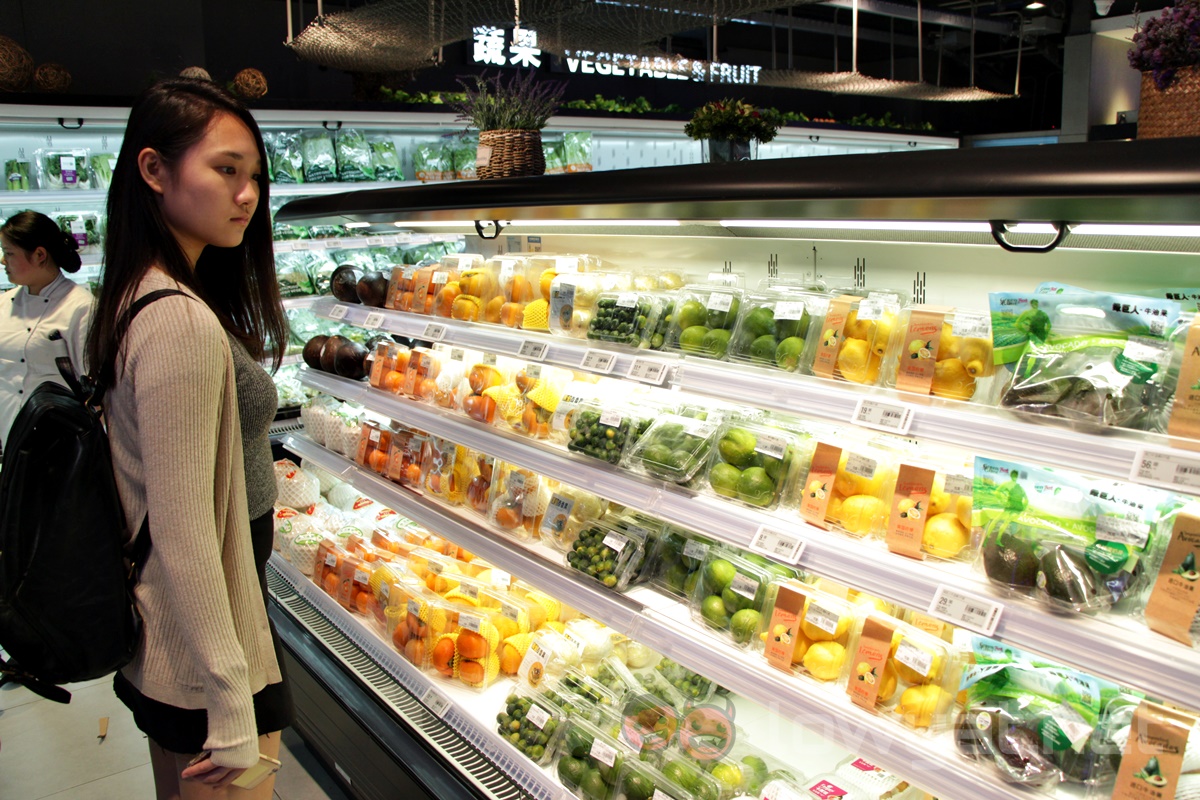Amazon may have made headlines with a cashless concept store, but it’s China’s Alibaba that is putting the idea to practical use. I was fortunate enough to be invited recently to experience shopping without needing cash at one of these concept stores, called a Hema store, in China. For the most part, it really looked like something out of the future: complete with gantries swinging overhead and massive wall-mounted terminals with barely any staff manning the store.
These stores are Alibaba’s concept supermarkets. They’re an interesting concept that aims to replicate the online shopping experience in a brick-and-mortar store. Alibaba has 20 Hema stores across China, the first of which was built in Jinqiao, Shanghai. I was told that this store has managed to become profitable after only a year in operation – largely due consumers completely embracing the idea of being able to buy groceries without having to lug them home (and the use of real-time data to adjust inventories).
The idea of a Hema store is something of an oddity. At its core, it is a physical store that demonstrates the convenience and simplicity of online shopping. Hence, this is one supermarket that is both extremely inviting, yet aims to discourage people from actually coming in.
How it does this is a testament to China’s willingness to adopt new technology.
Going cashless for the first time
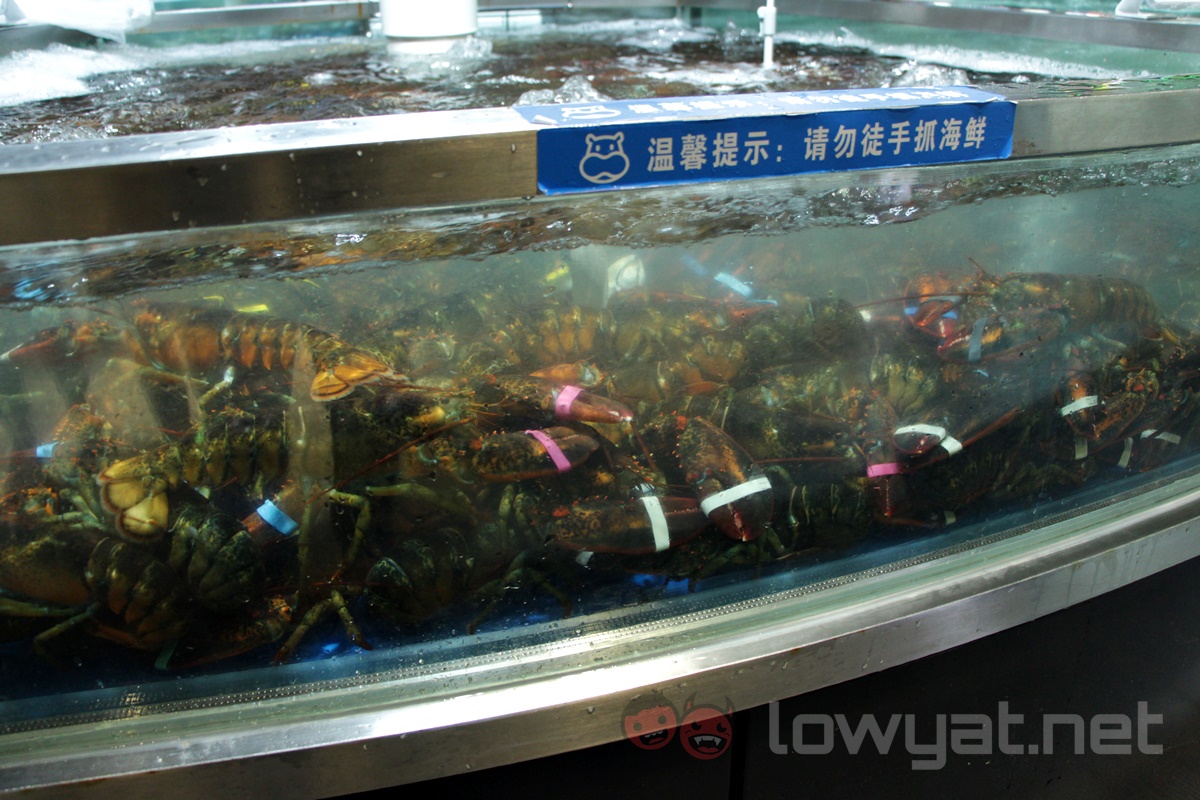
I visited a Hema store in Yunhe Shangjie, Hangzhou alongside other members of the media from across Southeast Asia, and the first stop was lunch. A time where my guide relished in showing off the variety of fresh seafood on sale; especially with the seasonal Shanghai hairy crabs available that day. This, I was told, also happens to be a local delicacy, and the price of the crabs certainly underscored that notion.
However, lunch wasn’t just about looking at seafood. Rather, it was about demonstrating the store’s accompanying food court; it had a kitchen that would serve up seafood bought from the supermarket section. It was also about to be my first encounter with paying for something with AliPay.
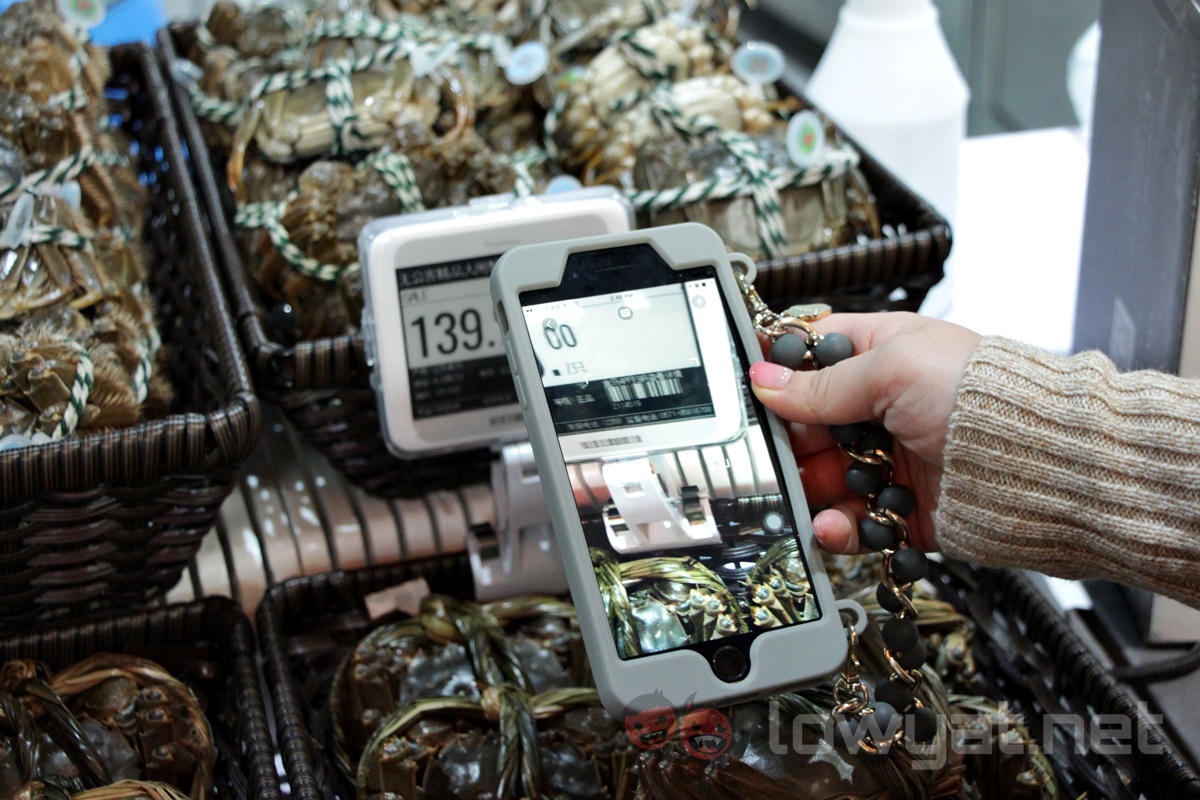
The system is simple enough. Each user has a unique QR code, which can be scanned at the counter. This tells the cashier who is paying, and from which account to deduct funds. A simple interaction that takes no time at all. At the very least, it beats getting dirty looks from the cashier when you have a very large note.
Interestingly, the Hema store doesn’t only work with AliPay. Users are free to use their Taobao accounts for logging in and paying. It extends the reach of the Hema store to those who aren’t on Alibaba’s digital wallet.
Buy now, deliver later
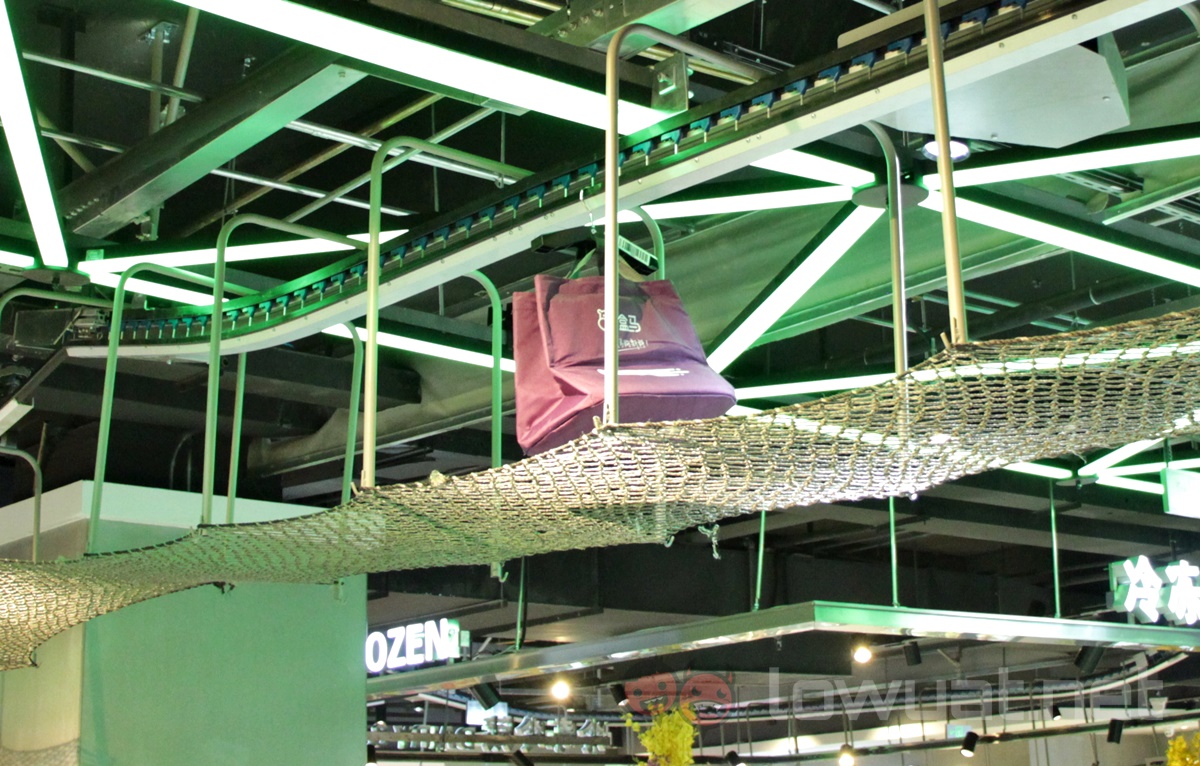
With lunch over, it was time to get a feel for shopping in a cashless store. Overall, it was a juxtaposition of boring supermarket and futuristic cyberpunk fantasy. Particularly marked by the number of bags constantly swinging from overhead gantries and large wall mounted displays where the cashier should have been.
Everything else is pretty much as one would expect from a supermarket, with the sections neatly divided across fresh produce, the aforementioned seafood, snacks, and other groceries. You could pay for your items at the self checkout kiosks, which is quite common in Western supermarkets, or have them delivered to your home – something you don’t see in supermarkets.
Using the home delivery option is simply a matter of scanning the barcode for each product and telling the app how many pieces of the item you want delivered to your house. Payment is similarly done through the app, and allows people to practically walk in and out of the store without interacting with a single person – or even touching anything.

These in-store-online purchases are then filled by employees who run up and down the aisles, collecting everything in canvas bags. The bags are then tagged and sent to the deliveries section via ceiling mounted conveyor belts. From there, the shopping with be shipped out to customers’ homes.
As for the self-checkout kiosks, one may imagine that it would be pretty easy to game the system and simply walk out of a Hema store with their groceries in hand. It’s a concern that I raised with Alibaba; and subsequently received a non-answer. It is fundamentally a trust issue between the shop and the customer, though security personnel are still present on the premises and is likely to be able to spot people who are in it for the five fingered discount.
As far as Alibaba is concerned, the Hema store is more of a showcase and a proof of concept. Alibaba would prefer if you used the home delivery option instead of picking things up as you would in a cash-and-carry outlet. After all, its overarching goal is still to encourage users to shop online.
A mix of high (and low) tech
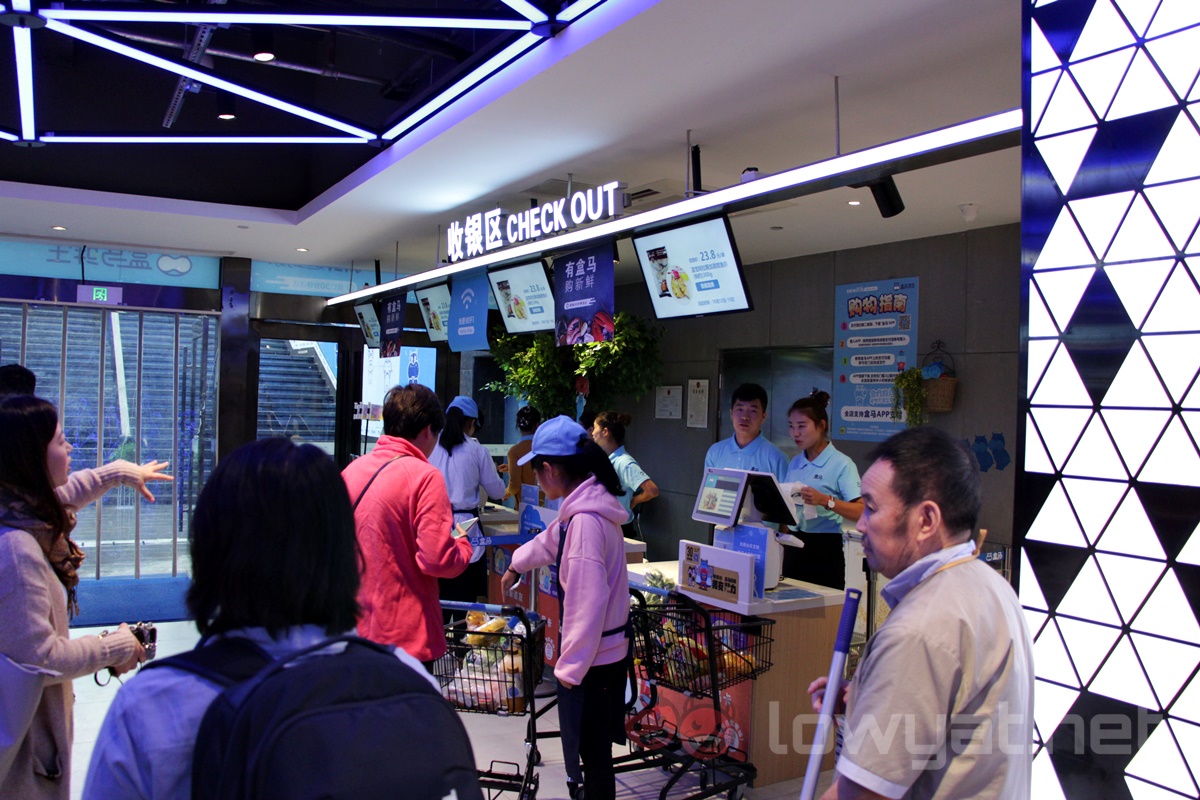
Free WiFi is available is every Hema store. Not because Alibaba expects people to camp out and treat it like a cafe, but because a stable internet connection is necessary for conducting any transaction within the store. Nothing worse than being unable to buy the week’s groceries because of an unstable connection.
Nonetheless, there is also a row of cashiers are located by the exit. I was told that these are to cater to older folk who don’t use smartphones, but they could just as easily be useful for foreigners who lack an AliPay or Taobao account.
Overarching goals
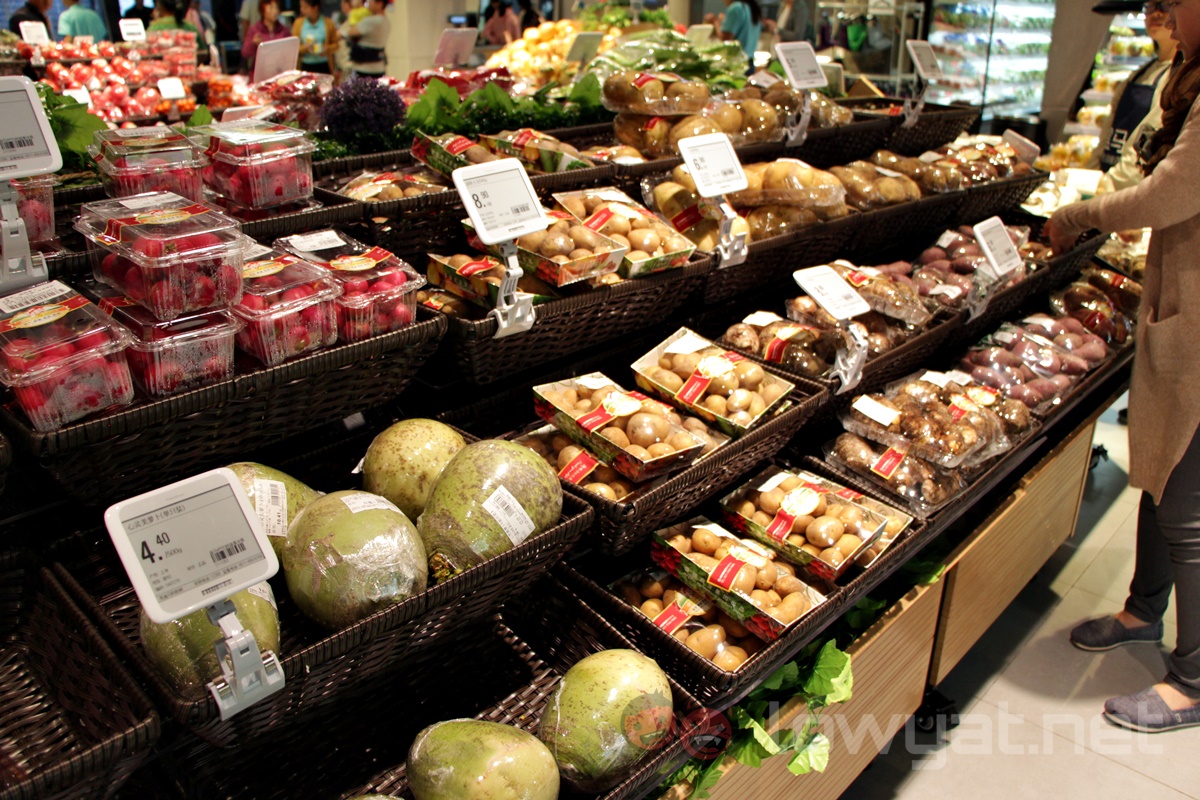
Alibaba doesn’t share customer numbers for these stores, only saying that they are extremely successful with a large amount of foot traffic. The closest answer I received was that this particular Hema store we were visiting received tens of thousands of customers when it opened on 28 September 2017.
That said, foot traffic doesn’t appear to be the main concern for Alibaba. The goal is not to open more stores, but rather to use the Hema concept to provide a model on which other retailers can adopt for their own cashless business. After all, Alibaba stands to gain more by providing a platform to retailers instead of directly competing with them; much like it does with Taobao. After all, Alibaba is a technology company, not a retailer.
Benefits from controlling the platform don’t only come in the form of direct business, but also from being able to mine consumer data in real time. For example, the Hema store tracks consumer behaviour and preferences; allowing Alibaba to adjust stocks to suit brands and goods that its regular customers prefer.
Our new digital overlords
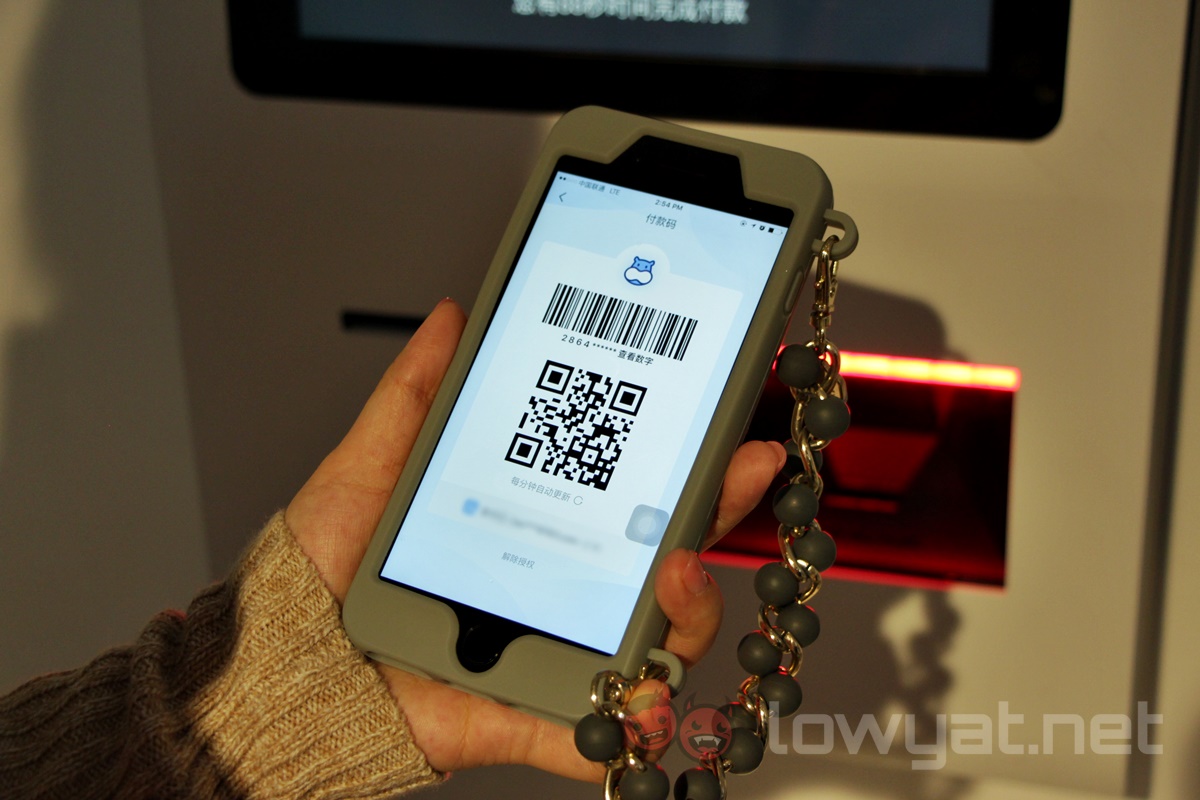
Therein lies the paradox of allowing cashless systems into our lives. China is perhaps less concerned with data privacy, having the most pervasive citizen monitoring system in the world. For the rest of us, there is a question of surrendering even more personal information for the sake of convenience.
It’s perhaps no different from our online shopping habits being tracked. People soon grow used to the idea of targeted ads on websites; and I wager we would also appreciate stores having better tools to identify which items have greater demand. Retailers, irrelevant of geographic location, would love to have this additional information on hand. After all, if it yields better inventory management based on real-world data, who wouldn’t want such a tool?
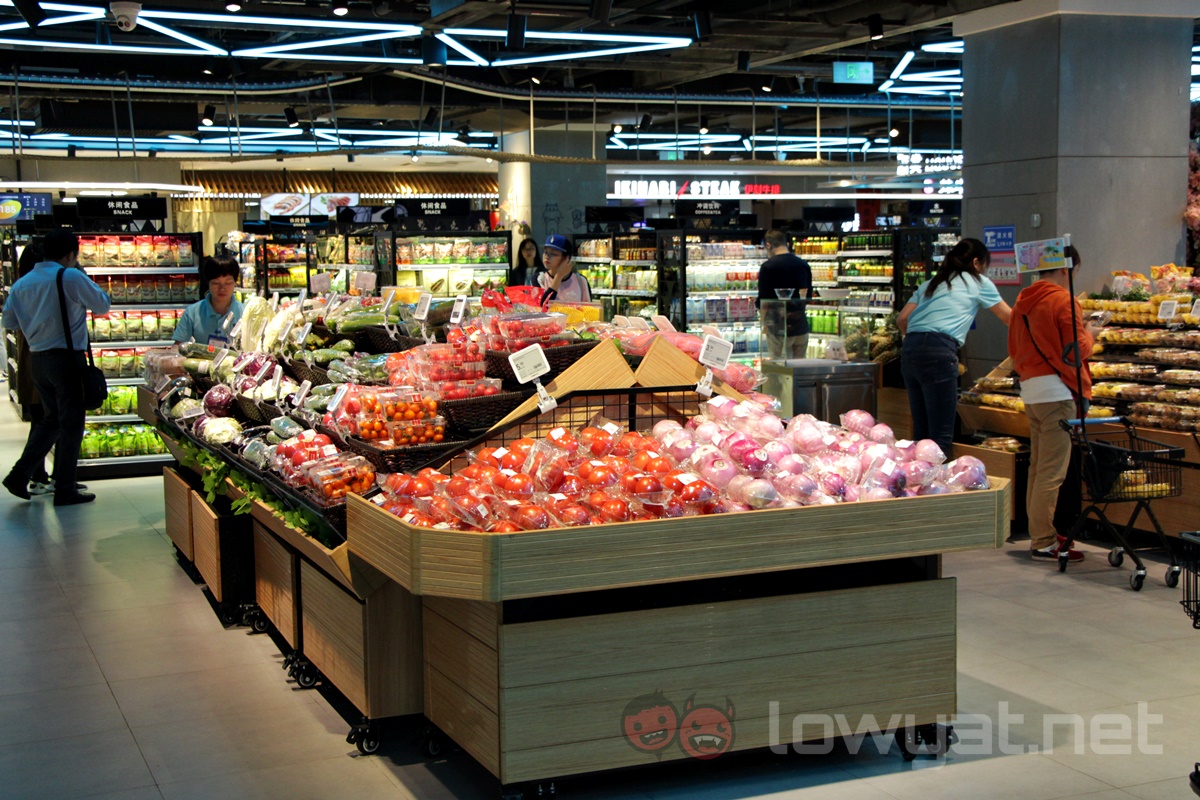
The Chinese are far more willing to embrace new ideas, especially when it comes to mobile technology. Alibaba is not alone in deploying the cashless idea, with Tencent-owned WeChat Pay also having huge prominence in the country. While WeChat’s solution is far less supply-chain integrated than Alibaba’s, it is every bit as pervasive in China; the fact that it’s linked to the largest instant messaging platform in the country certainly helps.
It only needs one visit to the country to see how far ahead the Chinese are as a cashless society. People use QR code-based solutions to pay for so many things, to the point where some cashiers genuinely looked confused at the idea of being paid in cash.
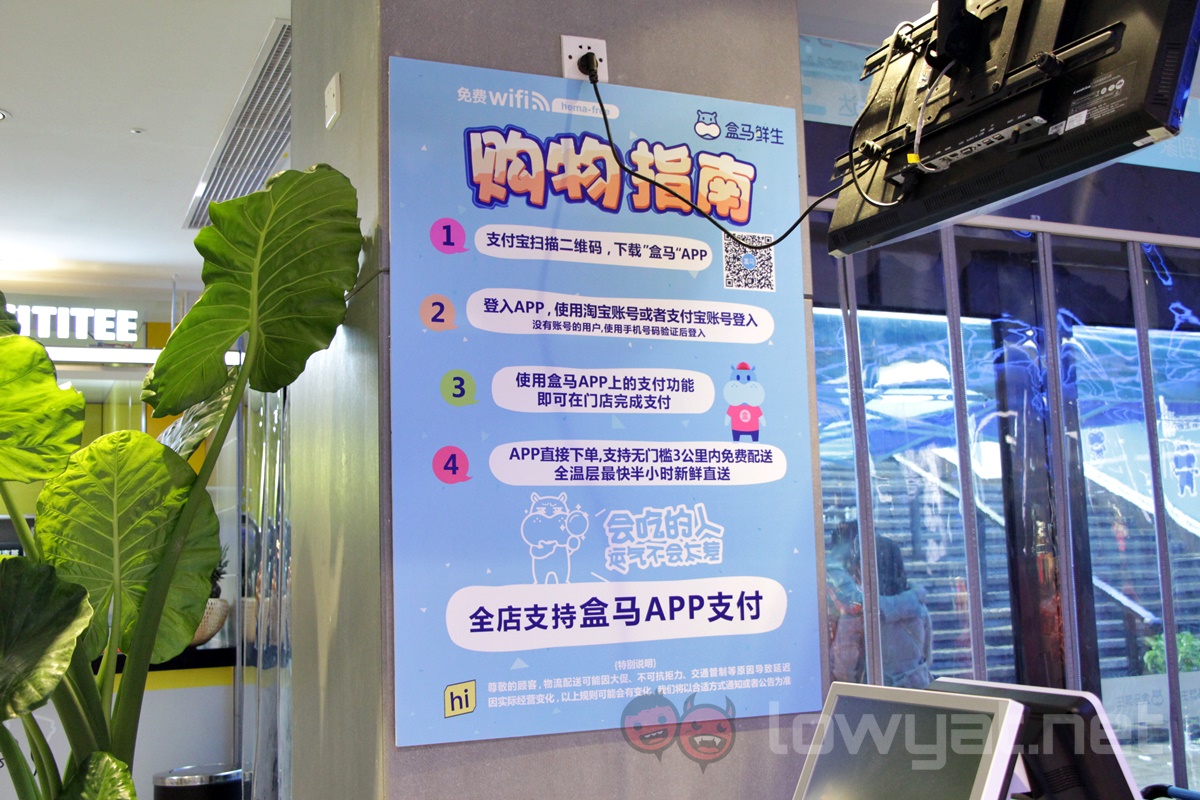
While the signs are that mobile payment solutions such as Alipay are slowly taking root here in Malaysia, it will take years more for something similar to a Hema store making a debut in this country. Mobile payment is still in its infancy, but Alibaba’s earmarking of Southeast Asia as a prime location for its global play is good news for the country. It has already made a huge stride into the region with the recent purchase of a controlling stake in Lazada, a sign of more things to come.
If anything, this visit to the Hema store in Hangzhou could be a glimpse of our own near future. One where our every retail needs are catered to before we even think of them, and corporations tracking our every purchase. It’s both a very tempting prospect, and a terrifying dystopian future.
Follow us on Instagram, Facebook, Twitter or Telegram for more updates and breaking news.


